Eagles’ Don Henley ‘regrets’ cocaine-fueled night with 16-year-old prostitute who suffered seizure: ‘I wanted to escape’

- Oops!Something went wrong.Please try again later.
Eagles co-founder Don Henley on Monday candidly recounted the cocaine-fueled night when he was busted with a 16-year-old prostitute at his Los Angeles home — calling it a “regret” he still lives with more than four decades later as he took the stand in Manhattan court.
Henley, 76, was asked about his 1980 arrest as he testified in the criminal trial surrounding a scheme involving allegedly stolen handwritten draft lyrics of “Hotel California” — saying the rock band’s breakup that fall made him depressed, prompting him to call a “madam” to provide him with “some company.”
“I wanted to forget what was going on. I wanted to escape the depression I was in,” Henley said matter-of-factly from the stand in Manhattan Supreme Court when prosecutors asked about his criminal history.
“So, I made a mistake — I called [a] madam and told her I wanted some company. And a few hours later, a young woman arrived at my home.”
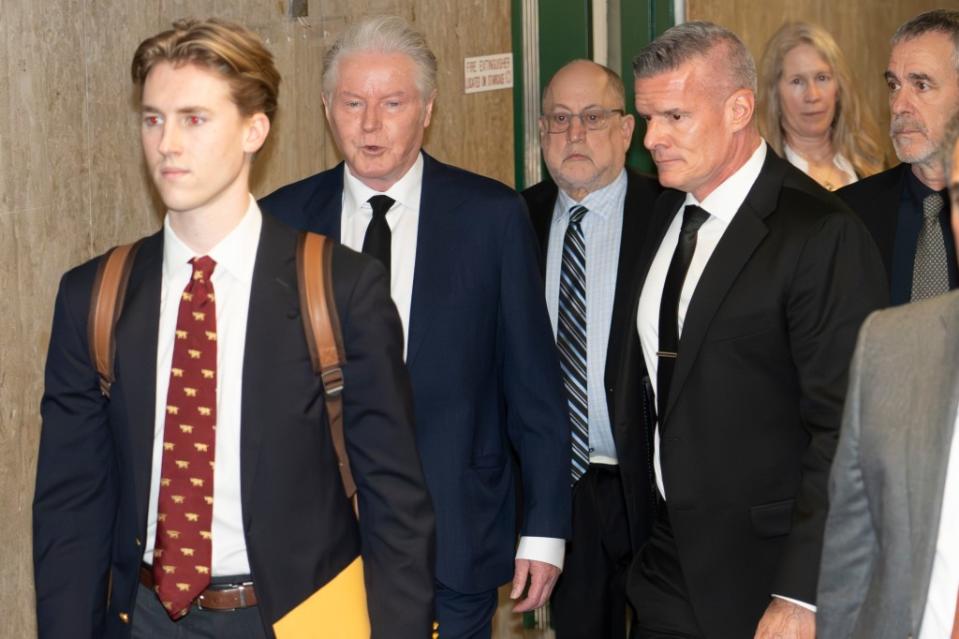
Dressed in a sharp blue suit, white shirt and black tie, the musician told the court about the Nov. 20, 1980, night when he invited roadies to his home to announce the news of the band’s breakup, which at that point was known only by the Eagles’ inner circle.
Once the groupies left his home, Henley said, a young woman — whom he believed to be “20, 21 years old” — arrived and the two shared intimate details about themselves, including him telling her about the Eagles’ split, he said.
The pair also shared cocaine, which Henley, speaking in a low, raspy tone, admitted that he used “intermittently” at the time.
“We began to talk. We had a little bit of wine. She asked me if I had any cocaine; I said I did. We did some of that,” he told the court.
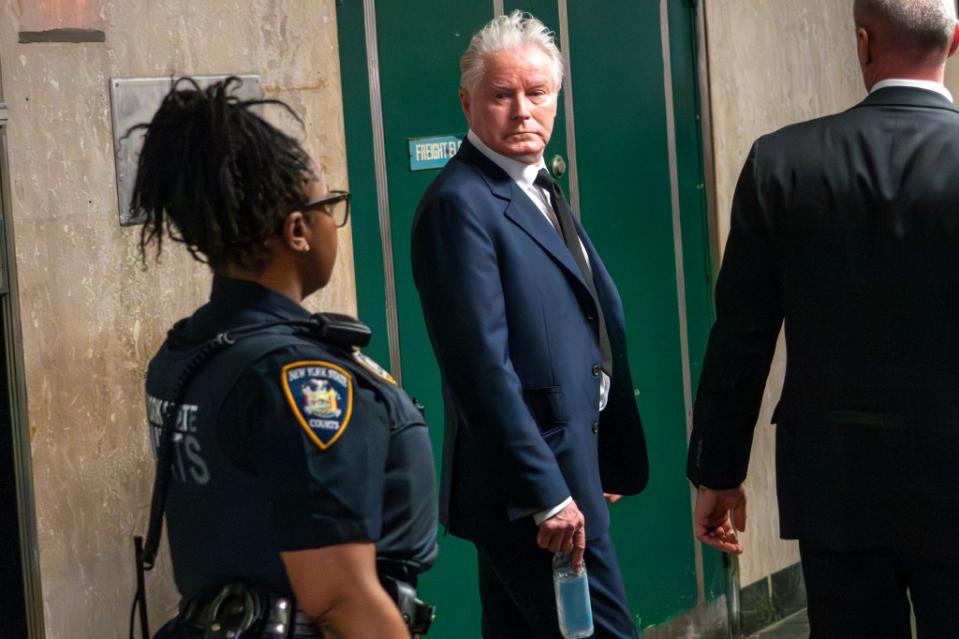
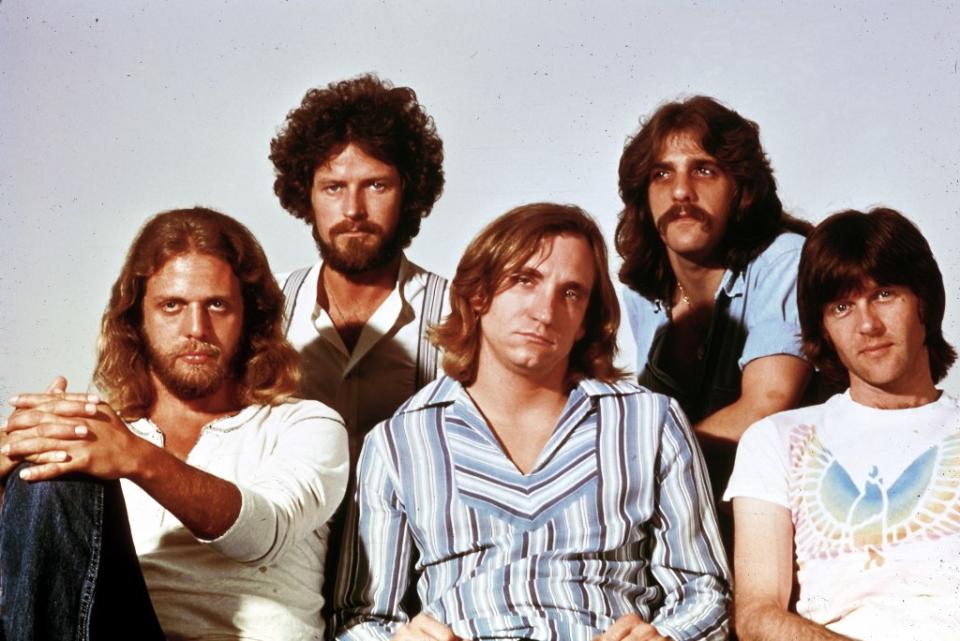
Henley testified that he went to bed with the girl, but said they didn’t have sex. When he got up in the morning, he heard a “crash” from the bedroom, and called 911 when he realized she was having a seizure.
The fire department arrived and told him that they either had to take her or she could stay in his care, he said on the stand.
Authorities said at the time that paramedics arrived to find the girl naked and suffering from an overdose, and then called police.
Henley on Monday said that when the girl woke up later in the day, he told her to call for someone to pick her up, and when her ride arrived, police were at his door and arrested him.
Henley was asked by Assistant District Attorney Aaron Ginandes whether he had found the “escape” he said he’d been seeking — and the rocker admitted he made a “poor decision” that he continues to live with.
“Apparently not. I wanted to forget about everything that was happening with the band,” Henley said. “I made a poor decision which I regret to this day. I’ve had to live with it for 44 years. I’m still living with it today in this courtroom.”
Henley pleaded no contest to a misdemeanor charge of contributing to the delinquency of a minor in 1981 — for which he received a sentence of probation and a $2,500 fine.
The media coverage surrounding the incident at the time was reportedly the inspiration for Henley’s song “Dirty Laundry” off his 1982 solo album, and he also discussed it in a 1991 GQ Magazine interview in which he also said he didn’t know the girl was underage until after he was arrested.
The Eagles drummer and singer was asked about it Monday during the ongoing trial of rare-books dealer Glenn Horowitz, ex-Rock & Roll Hall of Fame curator Craig Inciardi and memorabilia seller Edward Kosinki, who are accused of scheming to sell original documents from when the band worked on their hit 1976 album.
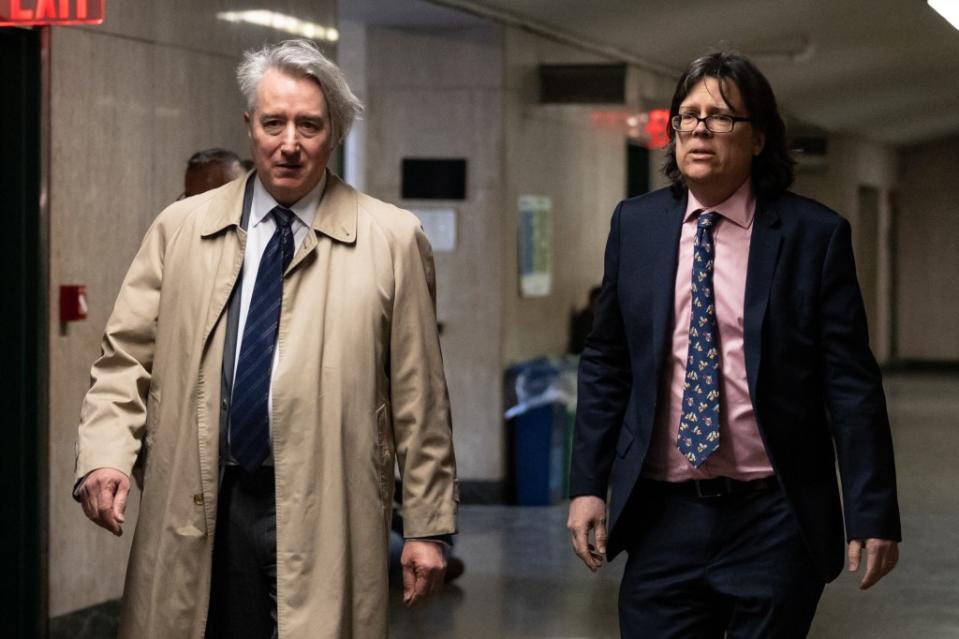
Henley accused Ed Sanders, the writer of a never-published biography about the band, of “stealing” the lyrics to their hit “Hotel California” before selling them off to rare collectible sellers in New York City.
Sanders, who has not been charged with wrongdoing nor publicly commented on the case, allegedly sold Henley’s notepads to Horowitz for $50,000 in 2005 — before the dealer passed off the collection to Inciardi and Kosinki in 2012, according to prosecutors.
The three face charges of conspiracy to possess stolen property and various other offenses at the non-jury trial.
Defense attorneys have maintained that Henley gave Sanders the documents, meaning they weren’t stolen property.
Henley on Monday testified that he’d given Sanders, a poet, access to his legal pads — but not permanently — to help with the book because he’d been disappointed by a 100-page manuscript he found to be full of “beatnik jargon.”
Henley’s patience began to wear off as Horowitz’s attorney, Jonathan Lach, played recordings of conversations between the musician and Sanders about the book and the manuscripts.
“I was an English major and I know good writing when I see it. I didn’t think it was good,” Henley said, adding that the lyric-pages were only meant to be viewed at a table in his converted Malibu barn.
“It doesn’t matter if I drove a U-Haul truck across the country and dumped them at his front door, he had no right to keep them or to sell them,” Henley fired at one point, accusing the defense of “cherry-picking” the recordings.
“I have tapes where he admits that he knows he shouldn’t have kept them,” he said.
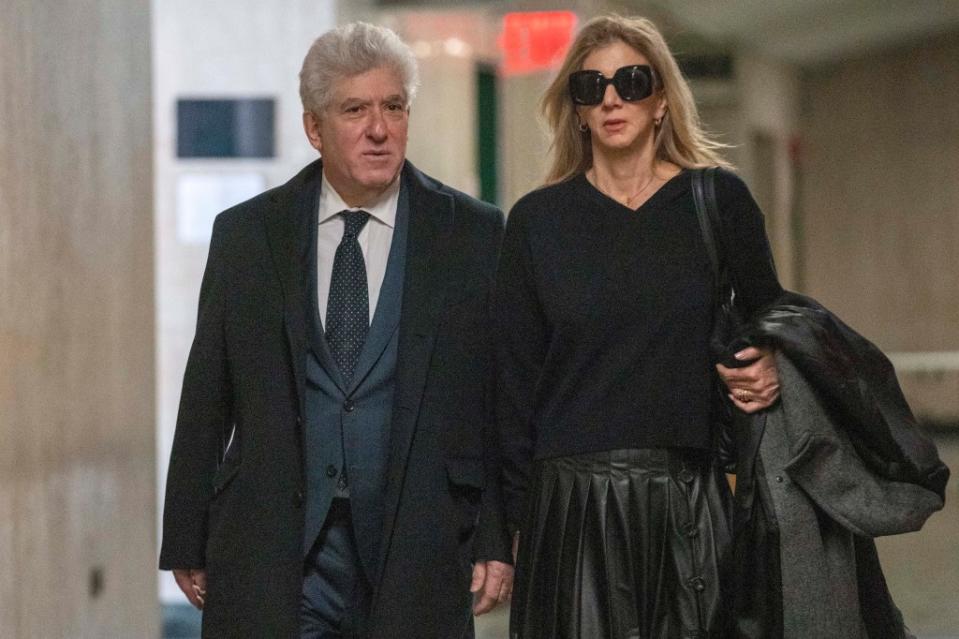
Prosecutors allege Horowitz and the other defendants conspired to sell the handwritten “Hotel California” lyrics that vanished from Henley’s Malibu barn along with at least 15 notepads and 100 other pages of lyrics.
Henley testified that he agreed to purchase the allegedly stolen four-lyric pages of “Hotel California” from Kosinksi’s auction on his website for $8,500 in May 2012 — in what he called a “bitter pill to swallow” — because he thought it was the end of it.
The raw lyrics were “things that nobody is supposed to see,” he told the court, comparing the process to how the sausage gets made.
“Those materials were private and personal and weren’t supposed to be seen by the public or by anybody else,” Henley said of the pages, which were exposed at auction.
He was then shocked when the lyric sheets from “Life in the Fast Lane” popped up at a Sotheby’s auction in 2014. Henley was offered again to buy back the materials for $12,000 — but he refused.
“I did not [buy them],” Henley explained when asked why he didn’t just purchase his lyrics again. “Because I was already extorted once and I wasn’t going to do it again.”
Prosecutors have alleged that Inciardi and Kosinksi allegedly tried selling through Sotheby’s one more time, in a private agreement in January 2016.
Henley said Sotheby’s first offered him half of the proceeds from the auction and then told him the co-signer would sell them to him for $90,000.
But he refused — and instead went to the Manhattan District Attorney’s Office.
“I couldn’t bring myself to do it,” Henley said.
He is set to return to the witness stand Tuesday morning for the rest of cross-examination, before resuming touring with the Eagles in Hollywood, FL. on Friday.

